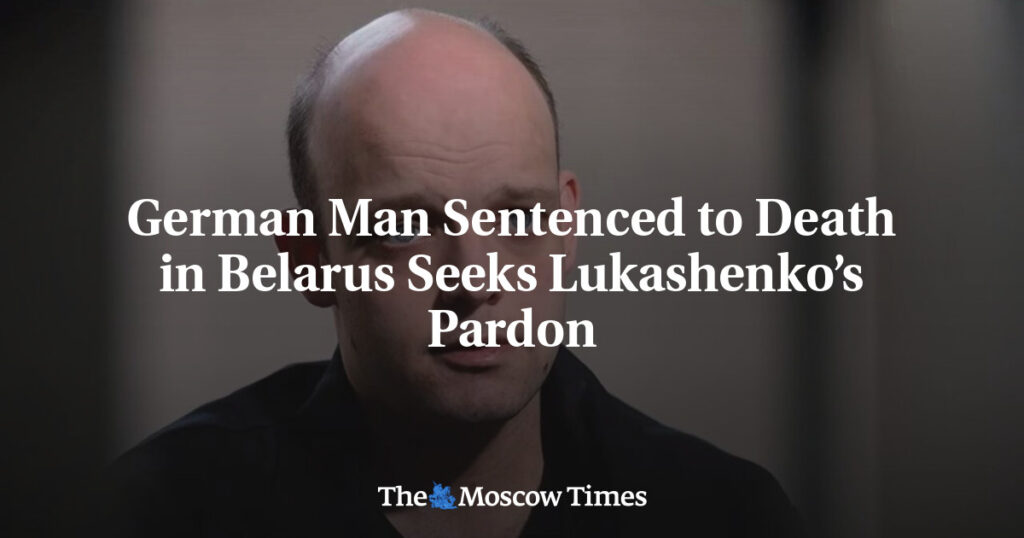German National on Belarusian Death Row Appeals for Pardon from President Lukashenko
In a controversial case that has drawn international condemnation, a German man named Rico Krieger, sentenced to death in Belarus last month, has formally requested a pardon from President Alexander Lukashenko. Krieger, 30, was convicted on six criminal charges, including terrorism, following a secret trial in late June.
The case has captured significant attention, particularly after Krieger appeared on the state broadcaster Belarus-1 last week. During the broadcast, he detailed some of the crimes he was accused of committing and expressed hope for clemency from President Lukashenko. However, questions arise about whether Krieger’s televised statement was made under duress, a concern highlighted by Berlin. The German government has condemned the Belarusian authorities for what they described as “parading” Krieger and reiterated their rejection of the death penalty under any circumstances.
President Alexander Lukashenko recently met with key officials, including the head of Belarus’ KGB security service, Krieger’s lawyer, and the lead investigator in the case, to discuss the possibility of a pardon. During the meeting, Lukashenko acknowledged the gravity of the decision, expressing the moral weight associated with cases involving the death penalty.
“Whether he appeals or doesn’t appeal [for a pardon], I’ve already said the most difficult thing in the fate of the president is such cases involving the exceptional measure of punishment,” Lukashenko was quoted as saying.
Deputy KGB chief Alexander Grib confirmed that Krieger had indeed filed a formal petition for a pardon. Krieger’s lawyer, Vladimir Gorbach, remained hopeful, stating that he was "counting on the president to perform an act of humanism" following their frank meeting.
Krieger’s case unfolds against a backdrop of complex international relations. Belarus, a staunch ally of Russia, is currently embroiled in negotiations with the United States regarding a potential prisoner exchange involving American citizens imprisoned in Russia. Germany and other Western nations might also play a role in these discussions. President Vladimir Putin has previously expressed interest in the return of Vadim Krasikov, a Russian national serving a life sentence for murder in Germany.
In his televised interview, Krieger claimed that he was tasked by Ukraine to photograph military sites in Belarus, and admitted to placing an explosive device on a railroad near Minsk. He expressed deep regret for his actions, noting that there were no victims and accusing the German government of abandoning him in his time of need.
According to a LinkedIn profile identified by the Viasna Human Rights Center, Krieger worked as a medic for the German Red Cross and had prior employment as an armed security officer for the U.S. Embassy in Berlin.
Belarus has a notorious record regarding capital punishment. Since gaining independence from the Soviet Union in 1991, the country has reportedly executed as many as 400 people, as documented by Amnesty International. However, the execution of foreign nationals remains a rare occurrence.
As the world watches, Krieger’s fate hangs in the balance, dependent on President Lukashenko’s willingness to exercise leniency in a country where the ultimate punishment is more than a mere judicial sentence—it’s a reflection of its geopolitical stance and internal policy rigidity. For more information on the German Red Cross and their humanitarian efforts, you can visit their official website here.
